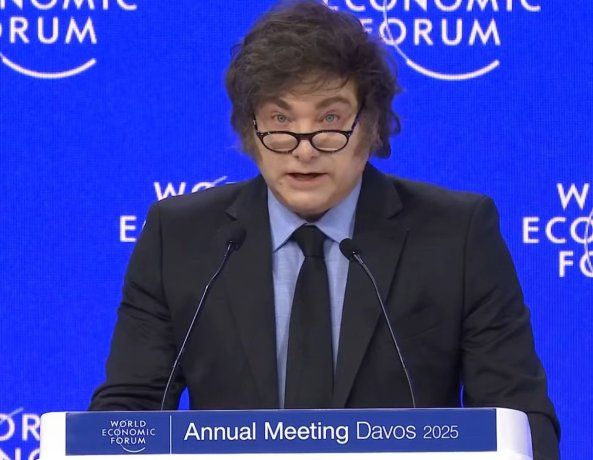In recent years, the term woke – originally associated with the fight against racism, gender equality and social justice – was co-opted and demonized by certain political and media sectors. What began as a progressive cultural movement ended up becoming the target of a global campaign that seeks to stop diversity, equity and inclusion initiatives. Behind this “anti-woke” crusade there are not only conservative ideologies, but also large economic interests that see a business opportunity in this narrative.
The reality is that, for news networks and right-wing politicians, the term woke became a derogatory label to attack any progressive initiative. But, analysts point out, this agenda is not spontaneous: it is backed by “think tanks”, corporations and billionaires who finance campaigns to shape public opinion.
Another key point is that some companies, while promoting “anti-woke” products or campaigns against inclusive policies, found a lucrative market in this rhetoric. From fashion to fast food, the “anti-woke” slogan became a marketing strategy to attract conservative sectors, especially in countries like the United States.
Precisely in the northern country there are several examples of companies that, by joining the “anti-woke” agenda, add sales. For example, Black Rifle Coffee Company (BRCC) is a coffee brand that promotes itself as pro-military and “anti-woke.” The firm led by ex-combatants It gained popularity among conservative sectors by positioning itself against large chains like Starbucks, perceived as more inclusive and progressive.
coffee woke.PNG
Along the same lines, initiatives that seek to differentiate themselves strongly from any pro-rights movement stand out. Such is the case Jeremy’s Razors, a razor brand created in response to Harry’s Razors, which was criticized by conservative sectors for supporting LGBTQ+ causes. Their slogan is openly “anti-woke”: “Stop giving your money to woke companies.”
Also in the United States there are emerging explicitly conservative markets. Mammoth Nation and PublicSquare are platforms that are described as the “anti-woke” alternative to giants like Amazon and with this simple slogan they sell the same products as any trading platform, but with a clear conservative ideology. As they explain, consumers are able to allocate their income to businesses with similar ideology.
For its part, although Bud Light is not a direct example; after its association with trans influencer Dylan Mulvaney, alternative brands emerged (such as Ultra Right Beer) that positioned themselves as the “anti-woke” option for consumers angry with the inclusion of diversity in marketing.. This is also a growing trend, consumers who proclaim this ideology are very critical of firms that do not follow their same guidelines and mass “cancellation” is practically commonplace on social networks.
Another emblematic case is that of Goya Foods, although a food brand, its CEO, Robert Unanue, gained notoriety by openly supporting Donald Trump becoming a symbol for “anti-woke” consumers. The reality is that the brand’s sales increased after failed boycotts promoted by progressive sectors.
In the world of fashion, the company Grunt Style stands out, a clothing brand with military and patriotic messages that appeals to a conservative audience by openly rejecting progressive values. Their t-shirts have images that support the free carrying of weapons, the consumption of alcohol and North American troops, among many other messages.
The truth is that the “anti-woke” ideology expands to other mass consumption products and services: from books, to news channels, magazines and even educational institutions today profess this progressive culture.
In Argentina, The faithful exponent of this movement is the President of the Nation himself, Javier Milei, and a large part of his followers. Recently, during his participation at the World Economic Forum in Davos, Milei gave a strong speech against woke ideology, calling it a “mental virus” and a “cancer that must be removed.” She criticized feminism, LGBTQ+ rights, environmentalism and social justice, pointing out that these currents pervert culture and hinder progress.
capture milei davos.jpg

Beyond his last presentation, in his speeches, Milei came to describe social justice as “sinister” and harshly criticizes the role of the State and multilateral organizations, advocating a reduction in state intervention in the economy and in life. of the citizens.
The reality is that, In Argentina, the concept of “anti-woke” is not as institutionalized as in countries like the United Statesbut certain companies, sectors and movements can fit within this narrative, either by their explicit opposition to progressive values or by adopting a discourse that aligns with the ideals of Javier Milei.
Cryptocurrency platforms that managed to grow in a market with consumers who reject financial regulations can fall into this category. Milei’s dollarization and anti-state stance strengthened his narrative.
Also, locally, Private universities or religiously oriented colleges, such as those managed by Opus Dei, often oppose feminist movements and comprehensive sexual education (CSE). Although they do not identify as “anti-woke”, they represent sectors that reject these ideas.
For its part, the evangelical church could also fall into this category, as many congregations have been critical of advances in LGBTQ+ rights and feminism, promoting traditional values in their communities. The same happens with entities such as Fundación Pro Vida, which defend positions against abortion and feminism.
Something similar happens with the media, although in Argentina they do not explicitly support a political leader or ideology, as happens in the United States. Currently there are news channels that, through their renowned hosts, promote critical discourse towards progressive policies, feminist movements and gender diversity.
On the other hand, although they are not specific companies, the possible relaxation of environmental regulations, driven by the anti-environmental agenda promoted by the national government, could benefit companies that operate in mining, oil, and gas.
In short, although Argentina does not have an institutionalized “anti-woke” movement like in other countries, these examples show how economic, cultural and religious sectors align with ideas contrary to progressivism. In this framework, these groups could politically or economically capitalize on Milei’s speech.
Source: Ambito




